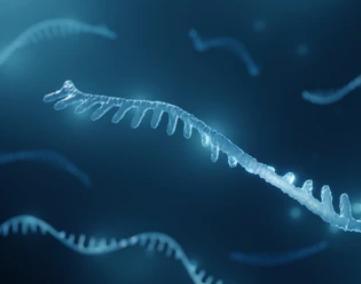Exosomes for miRNA Delivery
Online InquiryExosomes have several advantages over conventional delivery modalities. In contrast to established liposome formulations, exosomes are natural transporters and therefore less toxic or immunoreactive. Moreover, their stability in the blood, their ability to cross biological barriers such as the blood-brain barrier (BBB), and their inherent targeting properties, make exosomes an ideal system for nucleic acid drug delivery. These nanoparticles have shown potential for therapeutic delivery of microRNAs (miRNAs). miRNA is a small molecule that can be readily transfected into exosomes to prevent degradation by nucleases in the bloodstream. miRNA-loaded exosomes have shown the potential for a variety of disease treatments, including neurodegenerative diseases, cardiovascular disease, cancer, and so on.
Exosomes as carriers for miRNA delivery systems
miRNAs are small single-stranded RNA molecules ranging in length from 21 to 25 nucleotides. As a common non-coding RNA, miRNA is known to bind to partially complementary mRNA sequences to promote their degradation or translation inhibition, thereby regulating various physiological and pathological activities. In particular, there is growing evidence that miRNAs are highly associated with cancer development and/or progression. Tumor cells have been observed to release exosomes containing miRNA, and miRNAs secreted by donor cells can be taken up by recipient cells and act on them. Therefore, these small non-coding RNAs have been considered to be powerful tools for the effective treatment of different diseases and disorders. It is confirmed that exosomes can enrich specific endogenous miRNAs and regulate lipid metabolism, promote angiogenesis and apoptosis in cancer cells, and other physiological processes. Exosomes loaded with miRNAs have been proven to have good performance in regenerative medicine, cancer, neurodegenerative diseases, and cardiovascular disease treatment.

Support of exosomes as miRNA carriers
Exosomes are natural carriers of miRNAs and can be exploited as nucleic acid drug delivery systems. As the expectations for the clinical application of exosomes are increasing, Creative Proteomics provides exosome research and analysis services for further research and development of exosomes as a next-generation drug delivery system. Since the application of exosomes as a drug delivery system is in its infancy, we offer a variety of exosome purification methods and analytical techniques. Our exosome isolation and purification services are flexible and customized to support the production of high-yield and pure intact exosomes suitable for subsequent loading of genes and drugs, including miRNAs.
Explore our services
| Exosome analysis services | |
|---|---|
| Exosome isolation and purification | Sucrose gradient centrifugation |
| Polymer-based exosome enrichment method | |
| Immunomagnetic bead method | |
| Size exclusion chromatography method | |
| Exosome identification | Nanoparticle tracking analysis (NTA) |
| Electron microscopy analysis | |
| Western blot | |
| Exosome marker assay | Isolation and enrichment of exosomal CD9, CD63, CD81, TSG101, HSP70 proteins |
| Exosome surface protein identification and quantitative analysis | |
| Exosome engineering | Exosome labeling and tracking |
| Cargo loading | |
| Engineered exosome production | |
| Cargo loading assessment | |
| Exosomes labeling and tracking | Exosome fluorescent labeling |
| Fluorescence exosome purification | |
| Fluorescent exosome concentration labeling | |
| Exosome multiomics analysis | Exosome proteomics analysis: Exosome protein profile identification Exosome protein composition analysis Exosome protein expression level analysis Exosome protein differential expression analysis |
| Exosome metabolomics analysis: Exosome differential metabolite screening Qualitative and quantitative analysis of target metabolites/metabolic pathways | |
| Exosome lipidomics analysis: Exosome lipid composition and level analysis Differential expression analysis of exosomal lipid molecules Qualitative and quantitative analysis of targeted lipid molecules | |
| Exosomal biogenesis and identification | Our capabilities will provide strong support for the study of exosome biogenesis and its identification. |
| Exosomal cargo and loading mechanism | Our services can greatly help the study of exosomal cargo and loading mechanism, facilitating the diagnostic and therapeutic applications of exosomes. |
| Exosome function research | In vitro analysis of the function of exosomes In vivo analysis of the function of exosomes |
We hope that the experimental techniques and method of our services can greatly help researchers and professionals involved in exosome development in the future. It is important to note that our services include the above list, but are not limited to them. If you don't find what you're looking for, please contact us and our team will get back to you shortly.
References
- Mathiyalagan, Prabhu, and Susmita Sahoo. "Exosomes-based gene therapy for microRNA delivery." Cardiac Gene Therapy. Humana Press, New York, NY, 2017. 139-152.
- Fang, Zhengwen, et al. "Exosome based miRNA delivery strategy for disease treatment." Chinese Chemical Letters 33.4 (2022): 1693-1704.
* For Research Use Only. Not for use in diagnostic procedures.



